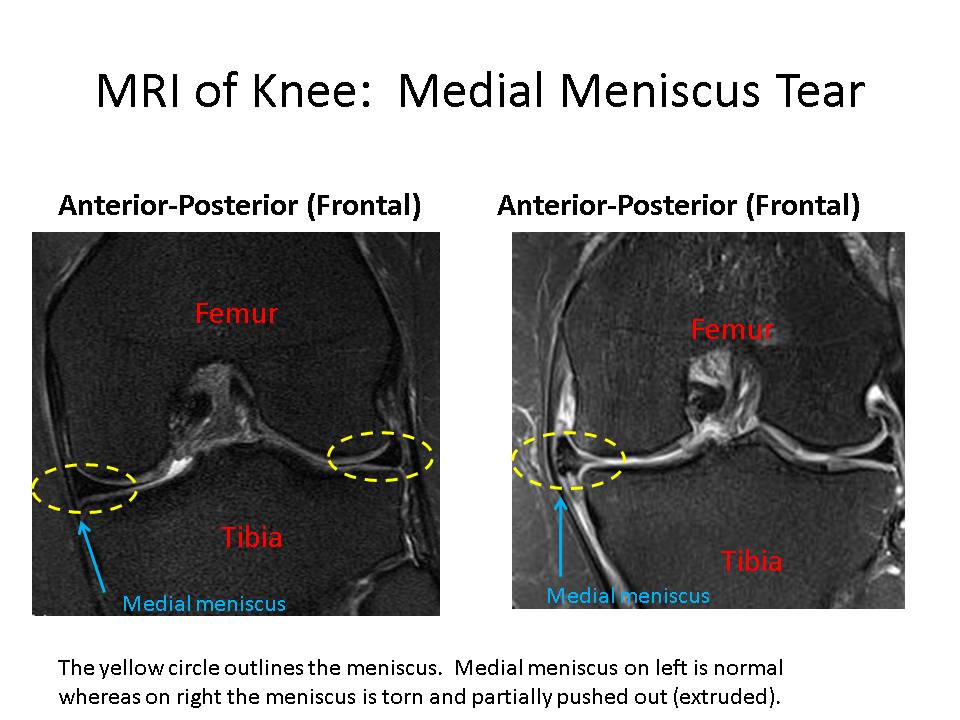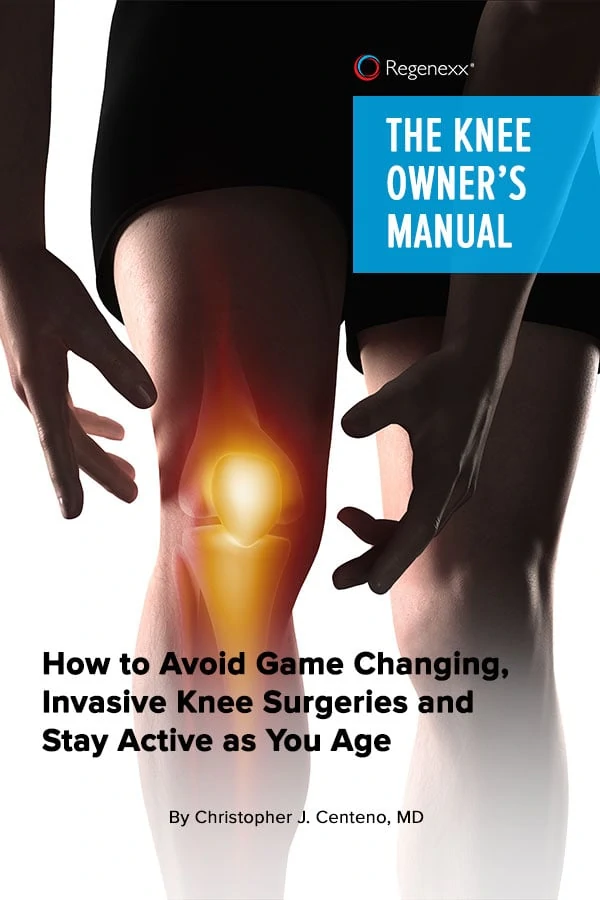The knee has two fibrocartilage strips between the femur(thigh bone) and tibia (shin bone) that are termed meniscus. They function to disperse the forces generated by activity and reduce friction.
Tears to the meniscus can occur from normal everyday activity, traumatic injuries, and degenerative changes. Tears can lead to pain and or swelling of the knee. Locking of the knee with the inability to fully straighten the leg can also occur. Diagnosis can be made by both ultrasound and MRI. Conservative therapy typically involves rest and physical therapy. Surgical therapy involves resection of the torn area referred to as meniscectomy. This has significant implications and can actually accelerate the degenerative process.
Image-guided bone marrow concentrate injections are now a viable option. The Regenexx procedure for meniscus tears allows patients the opportunity to use their own bone marrow concentrate containing stem cells thereby avoiding the risks of surgery and anesthesia in addition to the extensive post-surgical rehabilitation.
DS is a patient who successfully underwent the Regenexx procedure for her arthritic hip pain. As a result of her image-guided bone marrow concentrate injections, she had a significant reduction in hip pain which enabled her to increase her activity level. DS has returned to her regular yoga practice. Unfortunately, during a recent practice, she heard a loud pop with abrupt onset of knee pain. Her MRI is significant for a tear of the medial meniscus and laxity of the medial collateral ligament as evidenced by bowing out of the ligament. These findings are illustrated below. She has declined surgery and is scheduled to return to Centeno-Schultz Clinic for re-evaluation and probable Regenexx SD procedure along with platelet-derived growth factors therapy.

